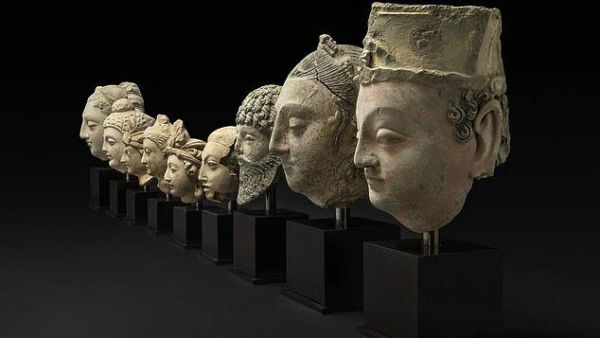A number of priceless fourth-century statues of Buddha that were stolen from Afghanistan and intercepted at Heathrow have been returned after a 17-year stay in the UK.
Officers stopped two wooden crates from Peshawar, in Pakistan, after suspecting the Buddha sculpture and nine Buddha heads inside might contain drugs.
After no narcotics were found, the items - which date back to between the fourth and sixth century - were seized by the Met's Art and Antiques unit.
{"preview_thumbnail":"https://cdn.flowplayer.com/6684a05f-6468-4ecd-87d5-a748773282a3/i/v-i-b…","video_id":"bc75c8ed-3c4a-41bf-86e9-3d82e04ac0de","player_id":"8ca46225-42a2-4245-9c20-7850ae937431","provider":"flowplayer","video":"US Will Keep About 600 troops in Syria"}
Detectives believed the objects had been stolen from Afghanistan.
They determined the items were sent on consignment to a business based in London, which was unaware of the nature of the objects.
The items had been sent to a business in the UK, who were unaware of the items, so the case was closed.
Afghanistan claimed the pieces but it was not possible to return the items due to turmoil and conflict in the country.
The items will now be returned to the National Museum of Afghanistan after being displayed for a short time at the British Museum.
DC Sophie Hayes from the Met's Art and Antiques unit, said: 'This has been a very long and complex case but I am delighted that after 17 years, these ancient and precious items are finally being returned to Afghanistan.
'The handover takes place during the Art and Antiques Unit's 50th year and it is fitting that, whilst celebrating our anniversary, we were also able to attend the event at the British Museum to celebrate Afghanistan's cultural heritage returning to its rightful home.'
This article has been adapted from its original source.








